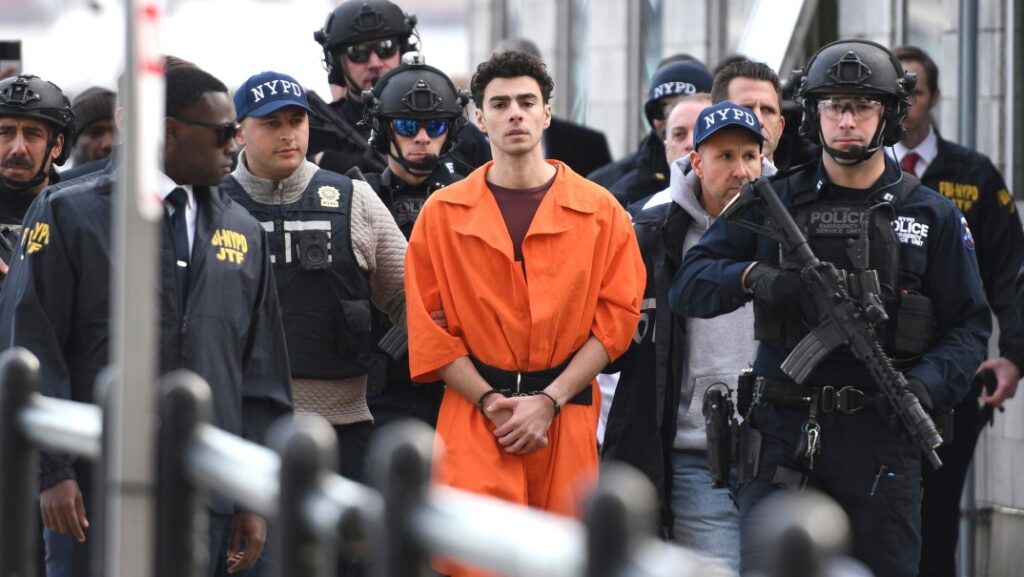MINNETONKA, Minn. — The shocking murder of UnitedHealthcare CEO Brian Thompson has sparked heated debates about accountability and systemic issues within the U.S. healthcare industry. While the person accused of the killing, Luigi Mangione, bears the primary blame, a recent poll reveals many Americans also attribute responsibility to the practices of health insurance companies.
The Tragic Incident and Public Reaction
On December 4, Brian Thompson was fatally shot in midtown Manhattan while walking to an investor conference. His death sent shockwaves through the corporate and healthcare sectors, reigniting frustration over healthcare coverage denials and skyrocketing medical costs.
The Accused: Luigi Mangione, a Maryland Ivy League graduate, was apprehended after a five-day manhunt in Pennsylvania. Authorities found a firearm matching the one used in the killing, a fake ID, and a notebook detailing grievances against health insurance companies and wealthy executives. Prosecutors have charged Mangione with murder, stalking, and terrorism-related crimes.
Poll Highlights: Who is Responsible?
A survey conducted by NORC at the University of Chicago revealed nuanced public perceptions of accountability:
- The Shooter’s Responsibility: Approximately 8 in 10 adults believe the shooter holds “a great deal” or “moderate” responsibility for Thompson’s death.
- Insurance Companies’ Role: About 7 in 10 Americans see the profits and coverage denials by health insurers as contributing factors.
- Broader Factors: Nearly half of respondents point to income inequality as a significant underlying issue, while fewer cite political divisions.
Generational Differences
The poll also uncovered generational divides in perceptions of blame:
- Younger adults (18-29) are more likely to attribute responsibility to both the shooter and systemic issues like insurer profits and denials.
- Older adults (60+) primarily blame the shooter, with 8 in 10 emphasizing his role over systemic contributors.
Corporate Impact and Backlash
Thompson’s killing has intensified scrutiny of the healthcare industry. Executives report a rise in threats, and the incident has fueled public outrage toward insurance practices. Although Mangione was not a UnitedHealthcare client, his story reflects broader frustrations with the healthcare system.
Brian Thompson’s Legacy
Thompson, a married father of two, had been with UnitedHealth Group for 20 years, becoming CEO of its insurance arm in 2021. His tragic death underscores ongoing tensions within the U.S. healthcare landscape and raises questions about the intersection of corporate responsibility, economic inequality, and public discontent.



